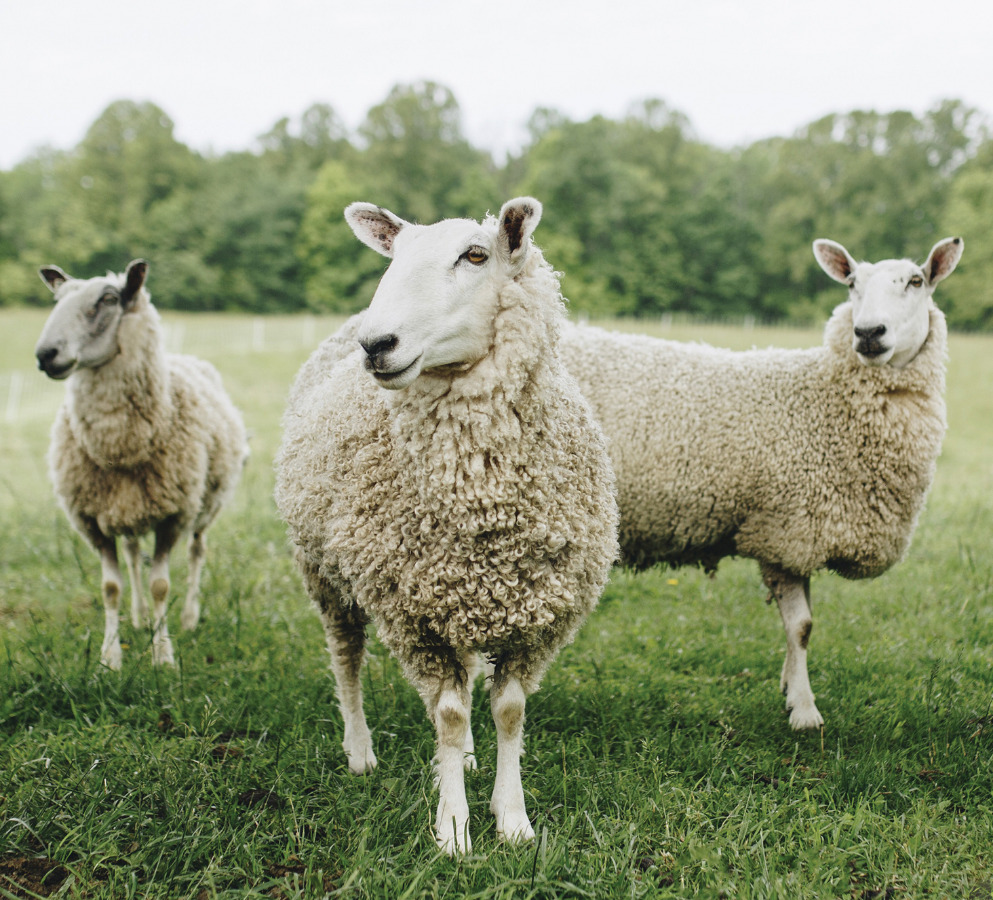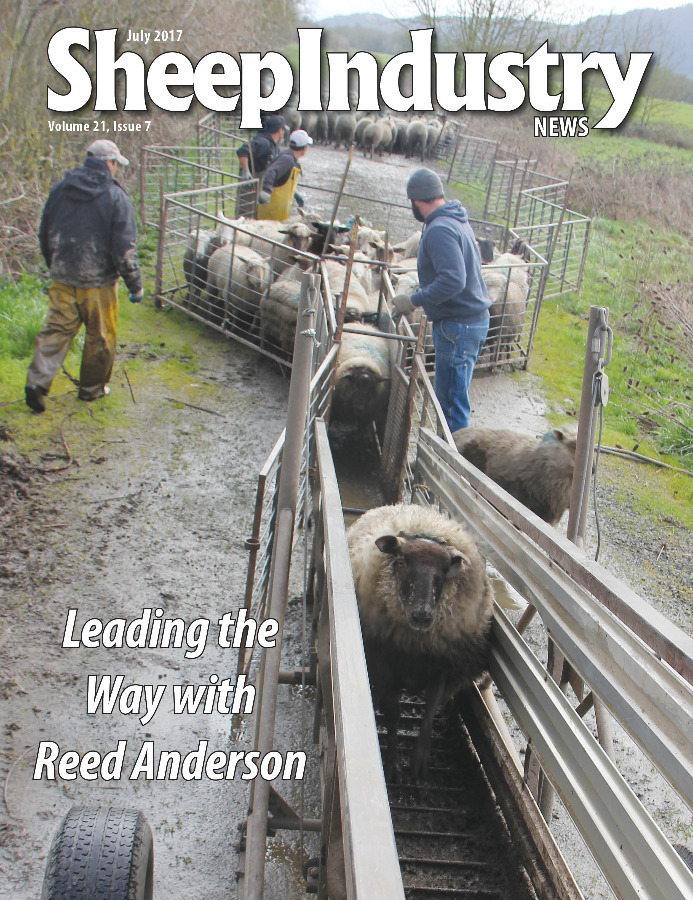Essential Education
Kentucky Producer Hannah Nilsson Tutors Beginning Sheep Producers
Hannah Nilsson has learned a lot since getting her start in the sheep industry (after returning to the family farm) and is sharing these experiences with others. Combine that practical knowledge of what works and what doesn’t with a passion for teaching, and she’s uniquely qualified to assist the growing number of sheep producers in her native Kentucky (and surrounding states).
 “I like to talk with people about all the things I wish I had known when I got into farming,” says Hannah, who inherited what was left of the family farm in Windsor, Ky. Hannah’s grandmother always hoped that the original 50-acre homestead would continue to be used. “Grandma wanted this land to be productive, so we had to figure out what worked for us so we could honor that wish. I started researching sheep and kept coming back to Border and Bluefaced Leicesters.”
“I like to talk with people about all the things I wish I had known when I got into farming,” says Hannah, who inherited what was left of the family farm in Windsor, Ky. Hannah’s grandmother always hoped that the original 50-acre homestead would continue to be used. “Grandma wanted this land to be productive, so we had to figure out what worked for us so we could honor that wish. I started researching sheep and kept coming back to Border and Bluefaced Leicesters.”
Some 25 sheep now call Windsor Wool Farm home. Many will live and die on the property, as Hannah specializes in the wool side of the industry. Recent years, however, have brought about a new interest: teaching.
“I think people have this Pollyanna view of farming, which is why there’s such a need for farming 101 style classes,” she says. “There’s such a growing interest in hobby farms, and many of the people moving to these places have no agriculture background or training. They want to do this more as a lifestyle than a business. That’s fine, but there’s still a need to educate those people about daily life on the farm.”
Hannah’s transition to teaching/consulting for sheep industry newbies began when she started selling sheep to other producers. She was quick to tell buyers to call with any questions, and consistently they took her up on the offer.
“A lot of my clients at the time were fiber artists just getting into this side of the wool industry, or beginning hobby farmers. I started making free farm consultation visits and a lot of it was because I wanted to make sure ‘my’ sheep were going to be taken care of. People said I didn’t sell sheep, I adopted them out. But I felt like it was important to be there after the sale.”
Early in her journey into the industry, Hannah found a similar mentor in Diana Anson (Alpine Acres). That relationship still exists today, and has provided a model for the way Hannah hopes to help others getting into the industry. Her teaching evolved into classes at sheep and goat gatherings within the state and now includes classes taught at her place in Windsor and individual consulting trips to prospective and existing farm operations.
“I felt the need to pay it forward,” she says. “The longer I’ve stayed in the industry, the more people began to ask my opinions on what they were doing with their own farms. It’s a part of my business that I’d like to grow in the years to come. I enjoy the opportunity to speak with new producers and to travel to their farms and help them create a plan for making their dreams come true.”
Generally Hannah’s classes and consultations begin with a worksheet that helps producers zero in on what they want and how they can get there.
Here are some general tips she offers:
• Start slow. Don’t buy 30 sheep right off the bat, unless you have the knowledge to do so.
“I always tell beginners to get three or four to start. After a few weeks, you might decide you don’t even like sheep. You can always buy more later.”
• Breed what you like.
“Diana told me this one time and it’s stuck with me. Ignore what everyone else says. Find what you like and do that.”
• Your grass and pastures will determine your stocking rate.
“People don’t pay attention to that. They might have too many sheep for the quality of pasture they have and then they’ll add a cow or horses on top of that. You have to understand what the land can support.”
• Work with the facilities you have.
“Not everyone can build that dream barn. Sometimes you have to work with what’s there, and there’s no shame in that.
• Make you mistakes on paper.
“I had a friend, Chet Roberts, who was a master builder and he used to tell me this. We make plenty of mistakes, but we try to make the big ones on paper and not in real life.”
• Where are you and where do you want to go?
“With my 101 class, I take people through this process. It’s beneficial for people to talk about this before they get started.”
• Find a mentor
“We all need a truth teller in our lives, someone who will tell you the good, the bad and the ugly about raising sheep and farming.”
• Investment should be tied to knowledge.
“If you don’t know a lot, you’re not allowed to invest a lot. As you gain knowledge, then you can start investing more money.”
Many small producers and new hobby farmers can feel isolated, intimidated or just not know where to go for information and guidance. Providing this type of information and mentoring can only help the industry as a whole.
For more information, visit WindsorWoolFarm.com.


